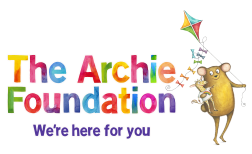We Aim To:
Assist children and young people to access appropriate bereavement support in Grampian.
Raise awareness of the impact of bereavement on children and young people.
Provide opportunities for children and young people to come together to acknowledge their loss and share activities and memory work in a safe and supportive environment.
Provide resources, information and support to families and carers where a child or young person in bereaved, including suitable books to help the child in their journey through loss.
Provide opportunities for parents and carers to come together and share in a supportive environment.
Provide support and information to carers and professionals working with bereaved children and young people.
Provide opportunities for family support and direct work with children and young people through our responder service.
Provide training for schools, organisations and professionals within Grampian.
We Believe That:
Bereavement is a normal part of life.
Children and young people grieve in their own way and at their own pace. Age and developmental stage will make a difference to how a child or young person manages their grief.
Whilst children and young people are resilient, in their grief, they continue to need space, opportunity and support from adults who they trust.
Every child and young person and their experience is unique. Their reaction to bereavement will also be unique and support should reflect this.
The relationship the child or young person had with the deceased person will impact on their response and the way they experience their grief.
The circumstances that led to the death and the impact of this on those close to the child will also affect the way a child or young person manages their grief.
Common Responses To Loss In Younger Children Are:
- A higher level of anxiety and clinging.
- Sleep disturbance.
- A need for reassurance.
- Asking questions about death.
- Acting out death via play.
- Anger.
- Regression to an earlier stage of development.
- Sore tummies.
- Changes in eating patterns.
- Tears.
- Withdrawal.
Common Responses To Loss In Older Children And Young People Are:
- Sleep disturbance.
- Changes in eating patterns.
- Anger.
- Risk taking behaviours.
- Challenging behaviour.
- Preoccupation about death and dying.
- Changes in personality.
- Withdrawal.
Suggestions To Support A Child Or Young Person:
- Don’t pressure a child or young person to speak about how they feel – They often can’t verbalise this. Give them space, time and opportunity.
- Acknowledge that you are aware that they have lost someone important. Always name the person who has died.
- Be sensitive to the changes in their behaviour. They may have difficulty in understanding these; for instance crying one moment and laughing the next.
- Give them opportunities to talk, or to express themselves when they want to. Some children and young people find this easier by drawing, acting out and creative work.
- Tell the truth and the detail about the death in a way that is appropriate to their age. This may need to be done in stages depending on the nature of the death and the age of the child.
- Consider them in decision making and planning the funeral, attendance at the funeral and visiting the grave or a special place to remember the person that they have lost.
- Give them a chance to remember the deceased in whatever way they feel is necessary and is helpful to them.
There are many good books and resources available to help prepare children for the loss of someone they love, understand what has happened and support their journey through grief.
If you would like further information or to access support for a child or young person who has been bereaved please contact us.



